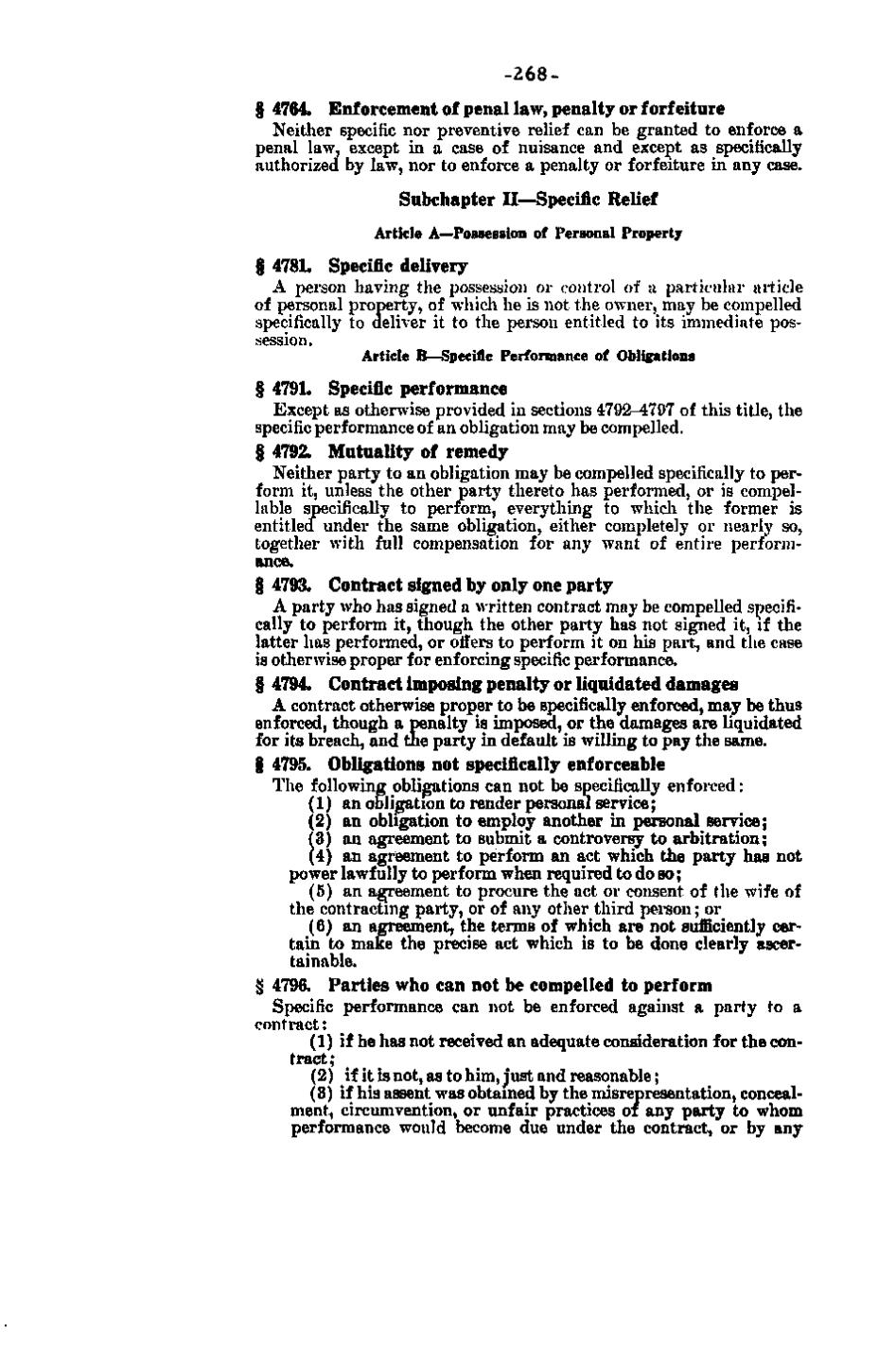–268–
-268§ 4764. Enforcement of penal law, penalty or forfeiture Neither specific nor preventive relief can be granted to enforce a penal law, except in a case of nuisance and except as specifically authorized by law, nor to enforce a penalty or forfeiture in any case. Subchapter II—Specific Relief Article A—Possession of Personal Property § 4781. Specific delivery A person having the possession or control of a particular ailicle of personal property, of which he is not the owner, may be compelled specifically to deliver it to the person entitled to its immediate possession. Article B—Specific Performance of Oblig^ations § 4791. Specific performance Except as otherwise provided in sections 4792-4797 of this title, the specific performance of an obligation may be compelled. § 4792. Mutuality of remedy Neither party to an obligation may be compelled specifically to perform it, unless the other party thereto has performed, or is compellable specifically to perform, everything to which the former is entitled under the same obligation, either completely or nearly so, together with full compensation for any want of entire performance. § 4793. Contract signed by only one party A party who has signed a written contract may be compelled specifically to perform it, though the other party has not signed it, if the latter has performed, or offers to perform it on his part, and the case is otherwise proper for enforcing specific performance. § 4794. Contract imposing penalty or liquidated damages A contract otherwise proper to be specifically enforced, may be thus enforced, though a penalty is imposed, or the damages are liquidated for its breach, and the party in default is willing to pay the same. § 4795. Obligations not specifically enforceable The following obligations can not be specifically enforced: (1) an obligation to render personal service; (2) an obligation to employ another in personal service; (3) an agreement to submit a controversy to arbitration; (4) an agreement to perform an act which the party has not power lawfully to perform when required to do so; (5) an agreement to procure the act or consent of the wife of the contracting party, or of any other third person; or (6) an agreement, the terms of which are not sufficiently certain to make the precise act which is to be done clearly ascertainable. § 4796. Part i e s who can not be compelled to perform Specific performance can not be enforced against a party to a contract: (1) if he has not received an adequate consideration for the contract; (2) if it is not, as to him, just and reasonable; (3) if his assent was obtained by the misrepresentation, concealment, circumvention, or unfair practices oi any party to whom performance would become due under the contract, or by any
�
